Restroom Cleanliness: The Key To Repeat Business
If you are like most people, at some point you’ve had the experience of using a public restroom that was untidy, unclean and filled with disagreeable odors. What impression of the business did that leave you with? Would you ever patronize that establishment again or recommend it to anyone else? For the vast majority of U.S. customers the answer is unequivocally no.
There is hard data to back this up. A survey conducted by Cintas Corporation of 1,011 U.S. adults ages 18 and older reveals that “94 percent of U.S. adults would avoid a business in the future if they encountered dirty restrooms.” 93 percent of those surveyed said the top three cleanliness items that would cause them to perceive a public restroom as dirty are:
| • Un-flushed toilets | 90 percent |
| • Odor | 89 percent |
| • Overflowing trash cans | 88 percent |
When asked what specific types of businesses they would avoid if they encountered dirty restrooms, U.S. adults reported the following:
| • Restaurants | 79 percent |
| • Hotels | 79 percent |
| • Healthcare Facilities | 77 percent |
| • Supermarkets | 50 percent |
| • Retail Stores | 45 percent |
| • Gas Stations | 45 percent |
| • Car Dealerships | 39 percent |
Customer Satisfaction
Whether you are a facility manager, store manager or operations manager, these are customer satisfaction issues that you simply can’t afford to ignore and need to take very seriously.
Consider a scenario where customer traffic in your stores or facilities dropped significantly due to unclean restrooms. You would no doubt find yourself in the uncomfortable position of having to explain why to senior management. Not good. The good news however is that such a scenario is entirely avoidable by implementing a full-service, comprehensive restroom cleaning and maintenance program.
Let’s define what constitutes “full-service, comprehensive” commercial restroom cleaning. The following restroom cleaning procedures (courtesy cleanfreek.com) are generally considered standard practice in the industry.
Safety Preparation
- Tag and separate mops, brooms and all cleaning equipment used for restrooms from that used in other parts of the facility to avoid cross-contamination.
- Make sure no customers are in the restroom before starting cleaning.
- Block the restroom door by propping it open with a door wedge, the cleaning cart, or a safety barrier.
- Place a closed sign on the door, the cleaning cart, or the safety barrier.
Standard Daily Cleaning Procedures
- Sweep up trash, dirt, and debris on the floor.
- Wipe down sink and fixtures.
- Clean around toilets and urinals.
- Empty garbage cans and replace liners where needed.
- Refill soap dispensers.
- Stock toilet paper and paper towel dispensers.
Weekly Cleaning Procedures
Weekly restroom cleaning is more thorough and consists of the above daily cleaning procedures plus the following:
- Use of an industry-certified germicidal, bactericidal, virucidal and fungicidal cleaning product.
- Clean, scrub and disinfect all interior and exterior surfaces of toilet, toilet seat, and urinals.
- Wipe down and disinfect all exterior surfaces, e.g., walls, panels, tiles, moulding, etc.
- Wipe down and disinfect all interior surface fixtures, e.g., door handles, light switches, countertops, partitions.
- Wipe down and disinfect sinks, faucets and handles.
- Clean mirrors with glass cleaner to remove any fingerprints and marks.
Monthly Cleaning Procedures
Monthly restroom cleaning consists of the above weekly cleaning procedures plus the following:.
- Replace all metered aerosol deodorizers and air fresheners.
- Replace the urinal blocks as necessary.
- Check that sink and floor drains are properly draining.
- Check with the store facility manager before using a drain cleaners – some caustic drain cleaners can damage plumbing.
- Notify store facility manager of any maintenance issues, e.g., broken door hinges, inoperable dispensers, clogged drains, etc.
Phew! While that sure seems like a comprehensive list of restroom cleaning procedures there’s something missing from this list that is vital to proper restroom maintenance. Namely, a thorough restroom “deep clean procedure.” If right now you are thinking “Isn’t cleaning all surfaces, fixtures and bowls with a germicidal cleaning product a deep clean procedure?”, the answer is no. And here’s why.
Over time dirt, grime, mold, mildew and germs accumulate in the various cracks, crevices and porous surfaces of a commercial restroom. Take a look around your restroom facility and inspect some of the more difficult to clean areas. Every door hinge, every fixture edge, every surface joint, and most notably every line of grout is an accumulation site for dirt and germs. Simply wiping down countertops, sweeping and mopping floors, even applying germicidal cleaning products will not remove dirt, germs and odor-causing bacteria from your restroom.
Did You Know?
“The majority of the [restroom] odor is actually created by odor causing bacteria that use urine as a food source. The more bacteria that are allowed to grow the stronger the odor. The odor causing bacteria can penetrate porous surfaces, grout, and even etched porcelain causing odor issues in restrooms if not maintained properly.”
— Nicole Livingston, R&D Technical Manager, Rochester Midland, Rochester, N.Y.
Now refer back to the table at the top of this article. Note how 89 percent of customers would consider a restroom dirty due to odors. The only way to remove these odors is with deep grout cleaning. Premier Floor Care has developed a proprietary pressure washing system designed specifically to “deep clean” commercial restroom floors, surfaces and fixtures.
Premier Floor Care is highly successful in preparing grocery stores and big box retail stores for customer appreciation days, gala events, and executive Immersion Walks, i.e., walkthroughs where senior executives examine every inch of the sales floor, display cases, and restrooms to gauge competitive advantage. Premier Floor Care has been the #1 vendor on the Safeway scorecard since it’s inception. We have received high praise from this grocery store chain for store cleanliness in Districts 4, 6, 7, and 9, and was again praised in a second Immersion Walk in District 4.
A key factor in achieving this rating was the quality of bathroom cleanliness. Premier has pioneered a special grout-cleaning, odor-eliminating process with a custom-built pressure washing system that leaves tile and fixtures sparkling clean for store customers.
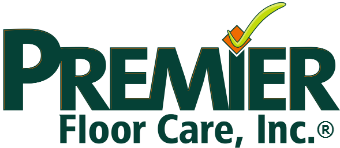
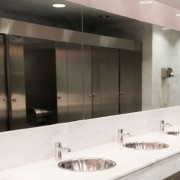
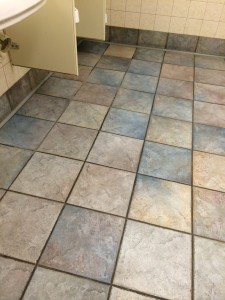
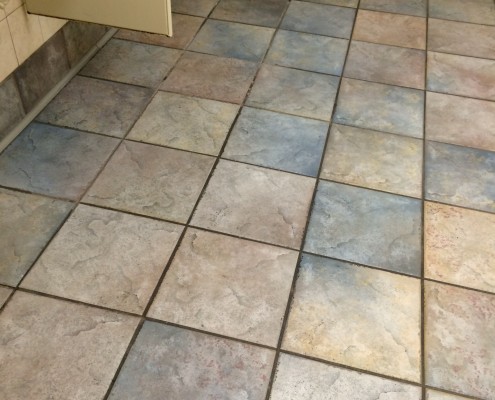
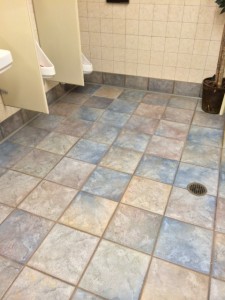
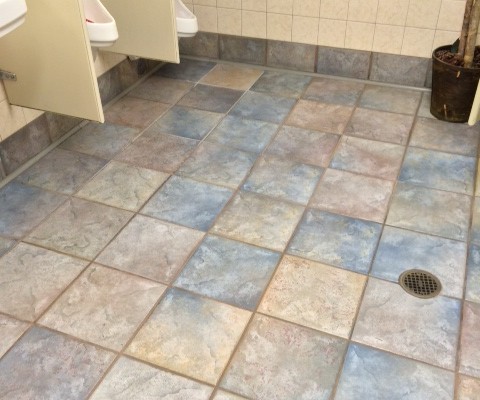
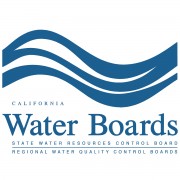
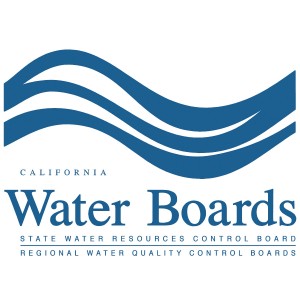
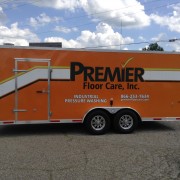


Follow Us